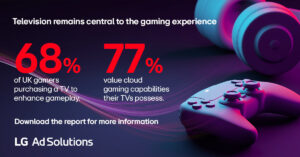The future of UK healthcare will play a key role in how people vote next month, according to new data.
The insight, from adtech firm Quantcast, shows that of people engaging in the UK election, the NHS is the leading topic of conversation. 9.48m devices consumed content on both, equating to 70% of the election’s addressable audience.
This is considerably higher than other key issues discussed during the initial TV debates, including education (17%), defence (12%) and housing (9%).
Immigration is the second most pressing issue on the minds of the electorate according to the data (62%), closely followed by tax (58%). Climate change policy is proving less influential at present (39%), as are pensions (31%).
Sir Keir Starmer, leader of the Labour Party, is receiving more engagement from UK devices across the open internet (12.8m) than the Prime Minister, Rishi Sunak (11.6m). When analysing the UK addressable audience size of the major parties, it’s a different story. The Conservative Party is leading the way (10.9m devices), closely followed by Labour (9.25m) then the Liberal Democrats (6.99m), Reform UK (6.71m) and the Green Party (5.89m).
Amit Kotecha, CMO at Quantcast, commented: “General election season is upon us and regardless of anyone’s political leanings, there will unquestionably be a significant increase in political coverage being published and consumed over the next month as people decide which way they’ll be voting on July 4th.
“Our data suggests that it’s the future of the NHS and immigration that are proving the key issues in the minds of voters at present, which certainly aligns with talking points in the TV debates we’ve already seen. It’ll be interesting to see if this pivots significantly now all of the major parties have published their manifestos.”
Kotecha added: “For brands, the election provides them with another opportunity to engage with their target audiences so understanding the key issues people are engaging with at present will allow them to tailor marketing accordingly. While Google’s third-party cookie deadline has again been delayed until 2025, this is a chance to trial cookieless targeting now, rather than waiting for next year and risk falling behind the competition.”








